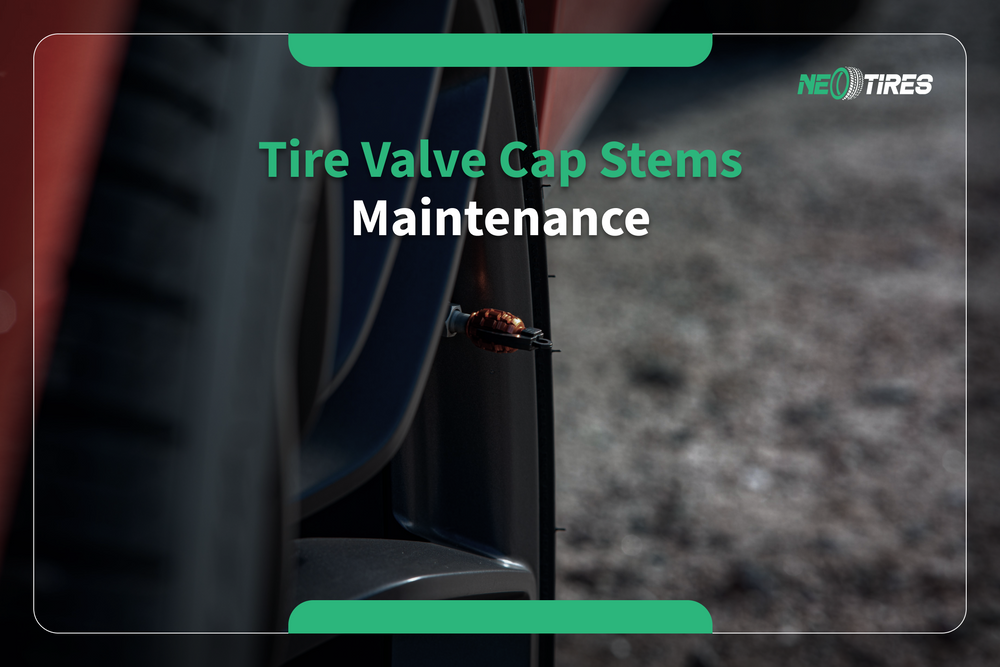You surely know how important your vehicle's tires are for the performance of your drive. And when you think about their maintenance, probably the first thing that comes to your mind is maintaining their pressure and taking care of their tread pattern. You're right, actually. But only partially. The tire pressure and tread pattern are indeed really essential elements. However, you left out a small detail: the tire valve stem.
For some reason, many car enthusiasts and owners do not give much importance to this small element. Why should they do it? The valve is nothing more than a plastic component that does not really have much value or role in the construction of the tire. However, if you think that way, know that you are very wrong. This piece of plastic, as you call it, has actually a much higher value than you can imagine.
Even if it is small and almost unnoticeable, it is the "protective wall" of the tire pressure. You know that tire pressure is critical, right? And you also know what happens if the pressure suddenly drops from it, right? Well, thanks to this "insignificant" valve the pressure is kept within the normal limits so that you can benefit from a smooth and riskless ride.
Tire Valve Stem: Why So Important?
There are no tires that do not have a valve. You will find the name "Shrader valve" in different sources, which is, in fact, the same thing. The purpose of the valves is to be a shield against pressure leakage from the tire. These keep the inflation level within normal limits unless there is valve damage.
The Schrader valve comes with a valve cap. This valve cap is the absolute component that makes the Schrader valve leak-proof. Many times, drivers lose this valve cap. In such cases, the Schrader valve becomes sensitive to all external agents on the road such as pebbles, dust, water, and dirt. If these external agents affect the valve without its cap, the tire is prone to air decompression through the unprotected opening of the valve.
Can You Drive Without A Tire Valve Cap?
It is not the best idea to ride with an incomplete tire valve. Once the Schrader valve is not protected by its cap, the gradual air leakage leads to major tire damage.
In other words, air leakage is equivalent to reducing tire pressure, which means riding with a flat tire. If one of your car's tires has low pressure, it develops uneven wear compared to the others. Even if you adjust the pressure, uneven wear between the 4 wheels will impact the overall driving experience and vehicle performance.
A negative effect related to tire wear is that it will deteriorate much earlier than the term stipulated by the manufacturer. Moreover, a tire with lower pressure than the norm is prone to severely affect the rim on which it is mounted. At the same time, the vehicle will consume much more fuel, as the vehicle will require additional effort to maintain optimal traction of the vehicle.
A very bad scenario is the probability of a tire blowout. That's right: blowouts are possible not only when the tire is over-inflated, but also when it is under-inflated as well.
So as you can see, a compromised valve in a tire can lead to a sequence of negative, expensive, and dangerous consequences for your health and life. Do you still think that the role of the tire valve is insignificant?
Can A Tire Lose Its Valve Stem Cap?
Drivers can find themselves without valve caps very easily and very frequently. These being tiny components, it is very easy to forget them somewhere when you check the tire pressure.
Even if the driver is cautious and takes care not to forget them, valve caps are prone to wear out while driving the car. Sometimes, valve caps can become loose and fall somewhere on the road while driving. In the same context, drivers can lose their valves when they often go on bad roads full of bumps and potholes. At the same time, the technician himself may forget to put them back when he checks your tires.
As you can see, there are dozens of scenarios in which you can find yourself without a valve cap. The solution is very simple: make sure the cap is in place before each ride. Considering its proportions are much too small in relation to the whole vehicle, it is very possible to overlook them. And once these are missing, the damage goes directly to the Schrader valve, which impacts the tire to a much bigger extent.
How Can You Prevent Tire Valve Cap Loss?
As you already know, there are dozens of scenarios in which your tire can run out of valve caps. And it would be good to protect yourself somehow to prevent potential risks and damage to your tires. How can you do it?
A good prevention method is to keep a couple of new valve caps in your glove box or trunk. They are very accessible for any driver. They differ in material and size. However, everyone can afford them. The price for a pair of valve caps is insignificant in relation to the price you can pay for the damage caused by their lack. For this reason, I urge you not to hesitate and get a spare pair.
In this sort of idea, take a look at the tire valves every time you inspect their tread and pressure. Draw special attention whenever you drive on a road with water, snow, mud, or potholes. These directly impact the way the caps attach to the valves. And every time you leave the car service, make sure that the technician has put them in place. He may be an expert in the field, but the caps are so tiny that it is absolutely human to overlook them. Last but not least, make sure they are present every time you go on a long trip. Better safe than sorry, right?
Tire Valve Stem: FAQs
What Is a Valve Stem on a Tire?
The valve stem is the little component of your rim consisting of the body, core, and head through which you pump air into the tire. The role of the valve stem is essential because it maintains the pressure in the tires and does not allow air to leak from them. Valve stems help maintain your wheel safety, which is why it is essential to keep it in good condition.
Are Tire Valve Caps Necessary?
These small details are essential to maintaining optimal tire pressure. The Schrader valve is integrated into the tire's rim and you pump air into the tire through it. If you don't close it hermetically with a valve cap, this valve will allow gradual air leakage from inside the tire. Consequently, the pressure will constantly decrease, which will endanger the safety and condition of the tires.
What Do Tire Valve Caps Do?
Their main role is to maintain the optimal pressure inside the tire. In addition, they protect the tire from debris, mud, dirt, and other particles that get inside the tire through the open valve. Often ignored, valve caps play an essential role in tire protection both from the perspective of pressure and protection against damaging material on the roads.
Will Your Tires Lose Air Without Caps?
Without a cap, the valve is not completely leakproof. Thus, pressure loss is highly likely if, for some reason, the cap is not in its place. Moreover, debris and dirt will enter the open valve, which will potentially lead to valve damage.
How Much Does It Cost to Replace a Tire Valve Stem?
Valve stem replacement is not an expensive procedure. Depending on the dealer, they offer valve stems for about $5 per unit. Any driver could replace his valve stems in his own garage. However, this process might require special tools that the motorist might not have. If you don't have them, you can replace your valve stems at any technical center for a price of about $25, more or less.
Can I Drive With a Broken Valve Stem?
Specialists recommend against driving with a damaged valve stem. In case of a defective valve stem, it is highly recommended to contact a mechanic as soon as possible. Valve stem damage increases the risk of tire failure and even blowout, which can endanger the safety and health of the driver.
How Do I Know If My Tire Valve Stem Is Bad?
Several symptoms can suggest a potential valve stem damage. You must take measures as soon as you notice them to prevent the potential risks of tire failure or blowout. The following signs alert a potential defective valve stem:
-gradual air leakage from the tire
-constant problems with tire pressure and TPMS alert on the dashboard
Consult a mechanic or spray some soapy water on the tire, especially in the valve stem area. If you notice bubbles around the stem, your valve might be defective.
Can a Tire Stem Be Repaired?
It depends on the degree of tire stem damage. In most cases, the valve stem can be repaired hassle-free at home. The driver could use a valve core tool and some new valve cores. Alternatively, the driver could seek help from a mechanic. Regardless, we strongly advise against continuing to drive with a faulty valve stem. The repair procedure takes little time and is inexpensive. So, don't put your safety at risk by ignoring the repair.
Should You Lubricate Tire Valve Stems?
It is recommended to apply light lubrication to the valve stems before installation, but it is not mandatory. You can use an approved tire lubricant for that purpose.
Why Trust Us?
The Neotires team specializes not only in selling tires but also in analyzing, studying, and evaluating their performance. The NeoTires team includes specialists with extensive experience in this field. Their experience helps us create truthful content, validated by experts, for the safety of our drivers and customers.
Throughout more than 5 years of activity, Neotires constantly collaborates with experts from the automotive and tire industries. This helps us to be in step with the new trends in this field and to offer quality services, assistance, and products. What really matters to us is customer satisfaction. For this, we strive to provide the best products, the safest driving tips, and the most unbiased tire reviews.
You can contact our trained consultants with any questions regarding tires. We will determine together what your issues are and what solutions will be the best for you. Drive safe and take care of your tire valves and caps!





